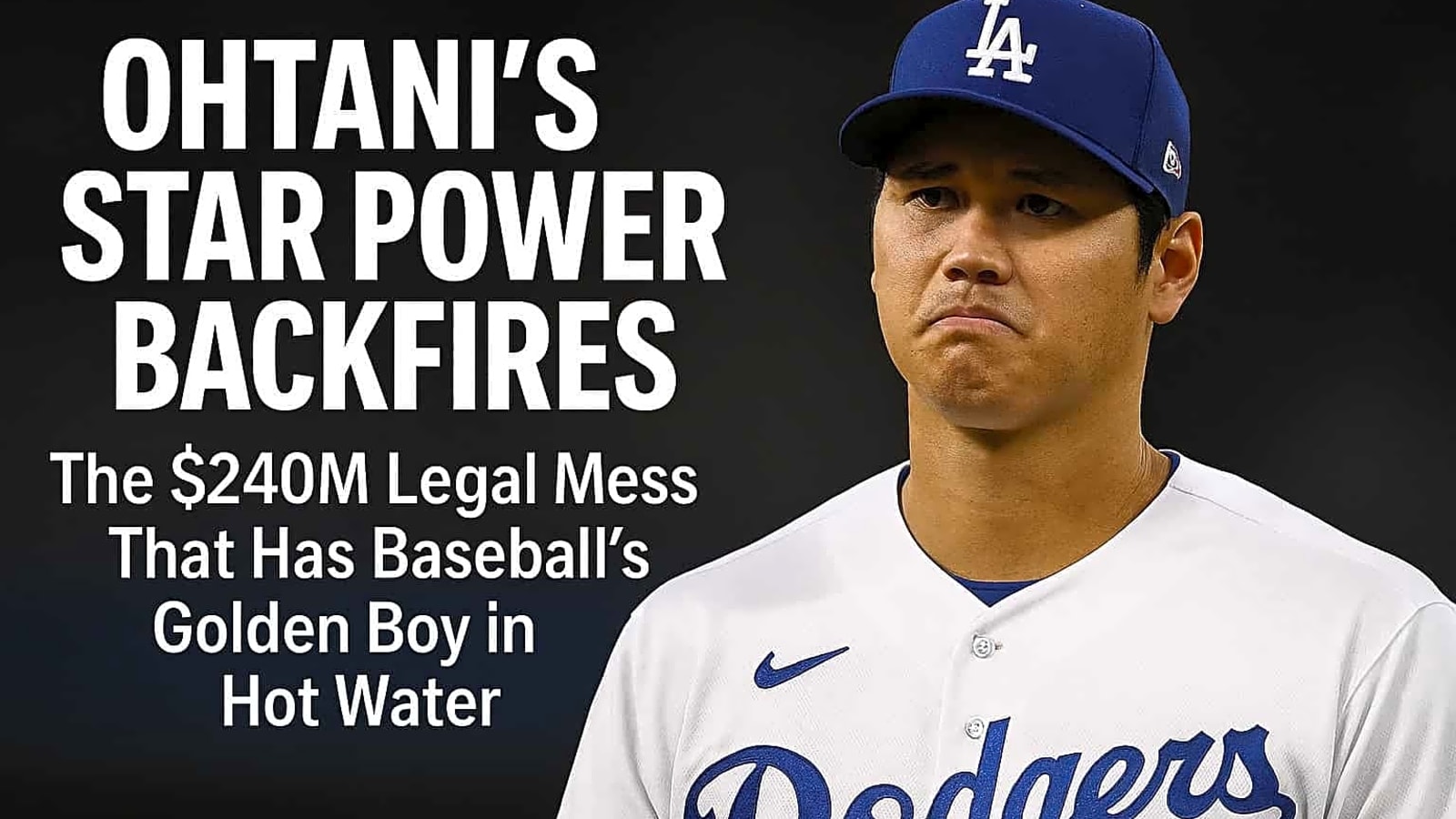
Oh, how the mighty have fallen. Or at least, how the mighty are getting sued for $240 million. Los Angeles Dodgers superstar Shohei Ohtani — the same guy who can’t seem to do anything wrong on the baseball diamond — now finds himself tangled up in a legal mess that reads like a bad Hollywood script. Spoiler alert: he’s not the hero in this one.
What’s All the Fuss About?
Here’s the deal: Ohtani and his agent, Nez Balelo, are being dragged to court over allegations that they basically bulldozed their way through a luxury Hawaii real estate project like they owned the place. And honestly? Maybe they thought they did.
The lawsuit, filed on August 8 in Hawaii Circuit Court, paints a picture that’s about as pretty as a strikeout with the bases loaded. Kevin J. Hayes Sr., a Hawaii real estate developer who’s been in the game for four decades, and real estate broker Tomoko Matsumoto claim they spent over ten years nurturing this high-end project on the Hapuna Coast. Then along comes Shohei in 2023, and suddenly they’re out on their butts faster than you can say “designated hitter.”
The Celebrity Power Play Gone Wrong
The plaintiffs aren’t mincing words here. They’re accusing Shohei and his agent of using what they call “celebrity leverage” to essentially bully Kingsbarn Realty Capital — their Las Vegas-based business partner — into giving Hayes and Matsumoto the boot. Because nothing says “professional business conduct” like throwing your weight around just because you can hit a 95-mph fastball, right?
According to the court documents, Balelo allegedly made demands and used “threats and baseless legal claims” to force the removal of the two longtime partners from the Vista at Mauna Kea Resort project. It’s the kind of behavior that makes you wonder if power really does corrupt, even when that power comes from being really, really good at baseball.
From Paradise to Purgatory
The irony here is thicker than the humidity in Hawaii. In a 2024 press release, Ohtani gushed about the project like a tourist writing postcards home. He called Hawaii “a beautiful blend of Pacific Ocean cultures” and described Mauna Kea Resort as his “own paradise.” He was supposedly building a winter home there, probably dreaming of sipping mai tais while counting his World Series rings.
But paradise has a way of turning into purgatory when lawyers get involved. The lawsuit claims that right after Ohtani’s involvement went public, Hayes and Matsumoto found themselves on the wrong end of what they call “tortious interference” and “unjust enrichment.” In plain English? They’re saying Ohtani and his agent screwed them over and then profited from it.
The Human Cost of Celebrity Business
What makes this whole situation particularly galling is the human element. Hayes and Matsumoto didn’t just stumble into this project last week — they’d been working on it for more than a decade. That’s longer than some marriages last, and probably involved more sleepless nights than raising a teenager.
These weren’t some fly-by-night operators looking to make a quick buck off Ohtani’s fame. Hayes has been in Hawaii real estate for 40 years, which means he was probably developing properties when Ohtani was still in diapers. But apparently, experience and dedication don’t count for much when you’re up against celebrity star power and deep pockets.
The Bigger Picture: When Fame Becomes a Weapon
This lawsuit isn’t just about real estate or money — though $240 million is nothing to sneeze at. It’s about something more fundamental: the idea that celebrity status doesn’t give you a free pass to steamroll over regular folks just trying to make a living.
Ohtani’s on-field achievements are undeniable. The guy’s batting .284 with 42 home runs this season, helping keep the Dodgers at the top of the National League West. He’s a five-time All-Star, three-time MVP, and the owner of a $700 million contract that made jaws drop from coast to coast. In the world of baseball, he’s basically untouchable.
But this lawsuit suggests that maybe — just maybe — Ohtani and his team thought that untouchability extended beyond the baseball diamond. It’s a classic case of letting success go to your head, and now it’s come back to bite them in a very expensive way.
The Legal Battle Ahead
Hayes and Matsumoto aren’t backing down, and frankly, good for them. Their lawsuit states plainly: “Defendants used threats and baseless legal claims to force a business partner to betray its contractual obligations and strip Plaintiffs of the very project they conceived and built.”
That’s not just legal jargon — that’s a battle cry from two people who refuse to be bullied by celebrity status. They’re essentially saying that contracts matter, fairness matters, and being famous doesn’t give you the right to destroy other people’s livelihoods.
The case is moving forward in court, where both sides will have to present their evidence. Unlike baseball, there’s no home field advantage here — just facts, law, and hopefully a little justice.
The Price of Paradise
What’s particularly frustrating about this whole mess is how unnecessary it probably was. Ohtani could have worked with Hayes and Matsumoto instead of against them. He could have used his celebrity status to elevate the project and everyone involved, creating a win-win situation that would have made great PR and even better business sense.
Instead, we’ve got this ugly legal battle that’s turning what should have been a feel-good story about baseball’s biggest star finding his slice of paradise into a cautionary tale about power, greed, and the dangers of letting fame go to your head.
Where Do We Go From Here?
As this legal drama unfolds, it’ll be interesting to see how it affects Ohtani’s carefully cultivated image. The guy has been practically untouchable in the media, treated like baseball’s golden child who could do no wrong. This lawsuit might not change that overnight, but it certainly adds a different wrinkle to the narrative.
For Hayes and Matsumoto, this is about more than money — it’s about principle. They’re fighting for the idea that hard work and dedication should count for something, and that celebrity status shouldn’t be a license to steamroll over others.
As for Ohtani? Well, he’s still hitting home runs and leading the Dodgers toward what could be another championship. But now he’s also facing the reality that actions have consequences, even for superstars with $700 million contracts.
The court case will determine who’s right and who’s wrong, but one thing’s already clear: this is one swing and miss that Ohtani probably wishes he could take back.
More must-reads:
- Who could still challenge Aaron Judge, Cal Raleigh in AL MVP race?
- Dodgers under pressure to deliver vs. Padres after Freeway Series sweep
- The 'MLB franchise home run leaders' quiz
Breaking News
Trending News
Customize Your Newsletter
 +
+
Get the latest news and rumors, customized to your favorite sports and teams. Emailed daily. Always free!








